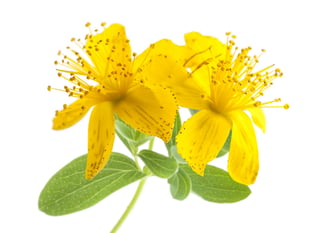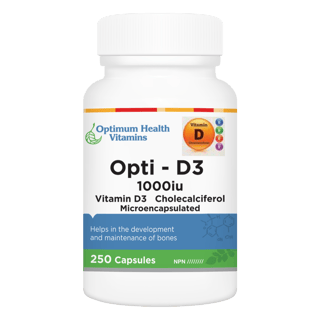 The fact that antidepressant and anti-anxiety drugs are the most prescribed set of pharmaceuticals in North America should alarm people. What is it about our society that makes people feel alienated, unwanted, anxious, and empty? Why are so many people walking around in a sedated state of chemical bliss, unable to face the world around them and, by extension, their own existence?
The fact that antidepressant and anti-anxiety drugs are the most prescribed set of pharmaceuticals in North America should alarm people. What is it about our society that makes people feel alienated, unwanted, anxious, and empty? Why are so many people walking around in a sedated state of chemical bliss, unable to face the world around them and, by extension, their own existence?
Last estimates found that approximately 1 in 10 Americans are taking the antidepressant class of drugs, SSRIs, daily and that this number had actually doubled over a period of nine years. Ativan sales for anxiety have risen steadily since its creation in 1963, so that at this very moment, there are millions of people taking the drug despite its highly addictive side effects.
Somewhere along the line, we became unable to face reality and sought help in all the wrong places. Where the rest of the world seeks reconciliation with the self in the temples, churches and mosques, North Americans go to the Rx pads of doctors all too eager to help pharmaceutical corporations legally sedate entire sections of the population.
What Happened?
In this article, we are going to look at the diseases of depression, obsessive compulsive disorder (OCD) and anxiety, how they manifest physically, what the signs and symptoms are, and how you can help yourself naturally under the supervision of a qualified health-care practitioner.
What is Depression?.jpg) It is estimated that, by the year 2020, major depression will be second only to ischemic heart disease in terms of the leading causes of disability in the world. The suicide risk in people with this type of depression is the highest rate for any psychiatric condition. For people between the ages of 10 and 24, suicide is the third leading cause of death.
It is estimated that, by the year 2020, major depression will be second only to ischemic heart disease in terms of the leading causes of disability in the world. The suicide risk in people with this type of depression is the highest rate for any psychiatric condition. For people between the ages of 10 and 24, suicide is the third leading cause of death.
There are many people who feel sad sometimes, however, depression occurs when feelings of intense despair, accompanied by helplessness, hopelessness or worthlessness, last for many days or weeks at a time. According to the official method of psychiatric diagnosis, depression occurs when you have at least five of the following symptoms simultaneously:
- A depressed mood during most of the day, particularly in the morning
- Fatigue or loss of energy almost everyday
- Feelings of worthlessness or guilt almost everyday
- Impaired concentration, indecisiveness
- Insomnia or hypersomnia almost everyday
- Diminished interest or pleasure in almost all activities daily
- Recurring thoughts of death or suicide
- A sense of restlessness or being slowed down
- Significant weight gain or weight loss
If you recently lost a loved one, have hypothyroidism, or are taking medications that cause these symptoms as side effects, then clinical depression is not necessarily what you may have, and other measures should be taken.
Signs and Symptoms of Depression:
- Difficulty concentrating, remembering details, and making decisions
- Fatigue and decreased energy
- feelings of guilt and worthlessness
- Feelings of hopelessness and pessimism
- Insomnia or hypersomnia
- Irritability
- Loss of interest in activities, particularly sex
- Loss of pleasure in life
- Overeating or appetite loss
- persistent aches, headaches, cramps or digestive issues
- Thoughts of suicide or suicide attempts
Depression also commonly occurs with other illnesses such as anxiety, OCD, panic disorder, phobias, and eating disorders.
Natural Helpers for Depression:
 St . John's Wort: St. John’s Wort is the most frequently prescribed medicine for the treatment of mild to moderate depression in Germany, far outselling pharmaceutical antidepressants. It was originally thought to work by inhibiting the enzyme monoamine oxidase. However, it has since been discovered to operate in a similar manner as selective serotonin reuptake inhibitors and tricyclic antidrepressants. It modulates the inhibition of the reuptake of norepinephrine and dopamine also. Though the exact mechanism by which St. John’s Wort exerts its antidepressant action is unknown, it can be very beneficial due to its mood-raising and anti-anxiolytic properties, in addition to being non-habit forming. The only precaution is that St. John’s Wort contraindicates with almost all pharmaceutical antidepressants, so consult with a doctor first if you are taking prescribed medication.
St . John's Wort: St. John’s Wort is the most frequently prescribed medicine for the treatment of mild to moderate depression in Germany, far outselling pharmaceutical antidepressants. It was originally thought to work by inhibiting the enzyme monoamine oxidase. However, it has since been discovered to operate in a similar manner as selective serotonin reuptake inhibitors and tricyclic antidrepressants. It modulates the inhibition of the reuptake of norepinephrine and dopamine also. Though the exact mechanism by which St. John’s Wort exerts its antidepressant action is unknown, it can be very beneficial due to its mood-raising and anti-anxiolytic properties, in addition to being non-habit forming. The only precaution is that St. John’s Wort contraindicates with almost all pharmaceutical antidepressants, so consult with a doctor first if you are taking prescribed medication.
5-HTP :or 5-hydroxytryptophan, is an amino acid that our body produces from a dietary amino acid called l-tryptophan. It has the ability to be converted into the mood-regulatingneurotransmitter serotonin as well as the sleep-inducing hormone melatonin. Overall, the clinical trials published to date indicate that 5-HTP may be effective in treating depression, both on its own and when used in conjunction with prescription antidepressants.
SAMe : SAMe (prounounced "sammy") is an abbreviation for S-adenosylmethionine.SAMe is manufactured in the human body from the essential amino acid methionine and the energy-producing compound adenosine triphosphate (ATP). SAMe molecules play a very important role in the body. They are able to donate a four-atom appendage - called a methyl group - to other nearby molecules. This process, called methylation, has many important functions in the body, including the regulation of neurotransmitters, such as serotonin, norepinephrine and dopamine. Shortages of these neurotransmitters have been associated with depression, so a shortage of a molecule like SAMe, which regulates these neurotransmitters, could play a role in depression. Overall, clinical trials involving SAMe indicate that it works as least as well as tricyclic antidepressants, an older class of antidepressants including such drugs as amitriptyline (Elavil, Endep), imipramine (Tofranil) and nortriptyline (Pamelor, Aventyl). Some studies indicate that SAMe may be superior to conventional antidepressants in at least one area: It appears to relieve depression more quickly, sometimes taking effect within a matter of days, rather weeks, which is typical of conventional antidepressants. When combined with a low-dose tricylic antidepressant, faster results were also seen.
 Vitamin D3 : According to Dr. Mercola, a study of more than 81,000 women found those with the highest intake of vitamin D from food sources had a significantly lower prevalence of depressive symptoms. The researchers suggested that vitamin D may affect the function of dopamine and norepinephrine. These are neurotransmitters that are likely involved in depression, while also modulating the relationship between depression and inflammation. The connection between vitamin D and depression is not new. In 2006, scientists evaluated the effects of vitamin D on the mental health of 80 elderly patients and found those with the lowest levels of vitamin D were 11 times more prone to be depressed than those who received healthy doses. In a current study, researchers found that intake of more than 400 IU of vitamin D from food sources was associated with a 20 percent lower risk of depressive symptoms compared with intake of less than 100 IU. This was a significant benefit from a very small amount of vitamin D -- as 400 IU is far too low to benefit most people. It's likely that vitamin D fights depression via several pathways, not only directly in your brain but also via inflammation. Vitamin D receptors have been identified throughout the human body, and that includes in your brain. Researchers have located metabolic pathways for vitamin D in the hippocampus and cerebellum of the brain, areas that are involved in planning, processing of information, and the formation of new memories. Sufficient vitamin D is also imperative for proper functioning of your immune system to combat inflammation, and other research has discovered that depressed people tend to have higher levels of inflammation in their brains.
Vitamin D3 : According to Dr. Mercola, a study of more than 81,000 women found those with the highest intake of vitamin D from food sources had a significantly lower prevalence of depressive symptoms. The researchers suggested that vitamin D may affect the function of dopamine and norepinephrine. These are neurotransmitters that are likely involved in depression, while also modulating the relationship between depression and inflammation. The connection between vitamin D and depression is not new. In 2006, scientists evaluated the effects of vitamin D on the mental health of 80 elderly patients and found those with the lowest levels of vitamin D were 11 times more prone to be depressed than those who received healthy doses. In a current study, researchers found that intake of more than 400 IU of vitamin D from food sources was associated with a 20 percent lower risk of depressive symptoms compared with intake of less than 100 IU. This was a significant benefit from a very small amount of vitamin D -- as 400 IU is far too low to benefit most people. It's likely that vitamin D fights depression via several pathways, not only directly in your brain but also via inflammation. Vitamin D receptors have been identified throughout the human body, and that includes in your brain. Researchers have located metabolic pathways for vitamin D in the hippocampus and cerebellum of the brain, areas that are involved in planning, processing of information, and the formation of new memories. Sufficient vitamin D is also imperative for proper functioning of your immune system to combat inflammation, and other research has discovered that depressed people tend to have higher levels of inflammation in their brains.
Related article: Is Vitamin D Right for You?
.jpg) What is Anxiety?
What is Anxiety?
Anxiety is a general term for several disorders that cause nervousness, fear, apprehension, and worrying. These disorders affect how we feel and behave, and they can manifest real physical symptoms. Mild anxiety is vague and unsettling, while severe anxiety can be extremely debilitating, having a serious impact on daily life.
People often experience a general state of worry or fear before confronting something challenging such as a test, examination, recital, or interview. These feelings are easily justified and considered normal. Anxiety is considered a problem when symptoms interfere with a person's ability to sleep or otherwise function. Generally speaking, anxiety occurs when a reaction is out of proportion with what might be normally expected in a situation.
Further classifications of Anxiety include : Generalized Anxiety Disorder, Panic Disorder, Phobia, Social Anxiety Disorder, Obsessive-Compulsive Disorder, Post-Traumatic Stress Disorder, and Separation Anxiety.
Signs and Symptoms of Anxiety:
Trembling, Churning Stomach, nausea, Diarreha, Head and Backaches, Heart Palpitations, Pins and Needles in the arms and legs, Sweating, restlessness, fatigued easily, difficulty concentrating, muscle tension, irritability, frequent urination, trouble falling and staying asleep, and being easily startled.
Natural Helpers For Anxiety:
GABA : GABA is a neurotransmitter in the brain, thus it is an essential substance that supports proper brain function. GABA is naturally produced in the body from glutamic acid with the help of vitamin B6. Glutamic acid is an amino acid that helps decrease the activity of brain cells. GABA also works in synergy with other nutrients such as niacin and inositol to reduce symptoms of stress and anxiety. Some anti-anxiety drugs such as benzodiazepines stimulate GABA receptors, thus delivering the same relaxing and calming effect as a GABA supplement.
Theanine : The amino acid L-theanine could have a positive effect on your anxiety and mood. Some research suggests L-theanine decreases anxiety and improves cognition, but its effect on anxiety is not yet fully understood. According to Memorial Sloan-Kettering Cancer Center, L-theanine appears to affect dopamine, serotonin and other neurotransmitters in rats. L-theanine alters rats' brain chemistry, but studies have drawn different conclusions about the implications of this research. A study published in Neurochemical Research found that L-theanine crossed the blood-brain barrier in rats. Their levels of norephinephrine, a stimulating neurotransmitter, did not increase, but their levels of serotonin, a neurotransmitter that regulates anxiety and depression, rose. Some evidence shows that L-theanine may decrease anxiety by increasing alpha waves in the brain. Some researchers theorize these electromagnetic waves slow the mind. In one Netherlands study, participants given 50mg of L-theanine showed an increase in alpha waves as measured by an electroencephalograph (EEG). A very small Japanese study produced similar results.
Skullcap :This antispasmodic, hypotensive plant is my go-to herb when the Sandman misses my house…and what a rock-star it is! A perennial member of the mint family, Skullcap thrives in the moist woodlands of North America and was originally used in pagan handfasting ceremonies (marriage) when couples wanted to make vows beyond this life. The entire Skullcap plant, complete with rhizomes, is used to create tonics that act principally on the sympathetic nervous system to control nervous irritations.
The main active constituents found in Skullcap include the flavonoids baicalein, baicalin, scutellarein and wogonin. These are plant secondary metabolites that are not essential for plant growth, development or reproduction, but are mainly active in issues of survivability, potential fecundity and aesthetics of the plant. Just imagine how these indications translate to the human biological system!
The activity of Skullcap as an effective anxiolytic (anti-anxiety treatment) was further demonstrated in the work of Wolfson and Hoffmann in 2003. They uncovered that Skullcap demonstrated a positive interaction with GABA receptors due specifically to its flavonoid content. Similarly to Valerian (as we will see), these compounds were also shown to play a role in binding to the benzodiazepine site of the GABA-A receptor, resulting in a significant sedative effect without being habit-forming.
 What is OCD?
What is OCD?
Obsessive Compulsive Disorder, a type of anxiety disorder, is a potentially disabling illness that traps people in endless cycles of repetitive thoughts and behaviors. People with OCD are plagued by recurring and distressing thoughts, fears, or images (obsessions) they cannot control. The anxiety (nervousness) produced by these thoughts leads to an urgent need to perform certain rituals or routines (compulsions). The compulsive rituals are performed in an attempt to prevent the obsessive thoughts or make them go away.
Although the ritual may temporarily alleviate anxiety, the person must perform the ritual again when the obsessive thoughts return. This OCD cycle can progress to the point of taking up hours of the person's day and significantly interfering with normal activities. People with OCD may be aware that their obsessions and compulsions are senseless or unrealistic, but they cannot stop them.
OCD afflicts about 3.3 million adults and about 1 million children and adolescents in the U.S. The disorder usually first appears in childhood, adolescence, or early adulthood. It occurs about equally in men and women and affects people of all races and socioeconomic backgrounds.
Signs and Symptoms of OCD:
- Fear of dirt or germs
- Fear of causing harm
- Fear of making a mistake
- Fear of being embarrassed
- Fear of thinking sinful thoughts
- Need for exactness and symmetry
- Excessive doubt and constant need for reassurance
- Repeatedly bathing, showering or washing hands
- Refusing to touch doorknobs or shake hands
- Repeatedly checking things
- Constantly counting
- Constantly arranging things in such a way
- Eating foods in a very specific order
- Repeating specific words or phrases
- Needing to perform tasks a specific number of times
- Collecting or hoarding items with no value.
Research has found a link between low levels of one neurotransmitter -- called serotonin -- and the development of OCD. In addition, there is evidence that a serotonin imbalance may be passed on from parents to children. This means the tendency to develop OCD may be inherited.
In addition, certain areas of the brain appear to be affected by the serotonin imbalance that leads to OCD. This problem seems to involve the pathways of the brain that link the area of the brain that deals with judgment and planning, and the area of the brain that filters messages involving body movements.
Studies also have found a link between a certain type of infection caused by the Streptococcus bacteria and OCD. This infection, if recurrent and untreated, may lead to the development of OCD and other disorders in children.
There are environmental stressors that can trigger OCD in people with a tendency toward developing the condition. These factors include:
- Abuse
- Changes in living situation
- Illness
- Death of a loved one
- Work, relationship or school related problems
Natural Helpers for OCD:
Crab Apple Flower Essence : The apple has strong mythological associations with Paradise, and of being cast-out of Paradise. Indeed, the personality needing Crab Apple flower essence has difficulty accepting the imperfections of the physical plane. This manifests as rejection or disgust, and at its deepest level, a feeling of shame for the physical body and its imperfections.
Such individuals are obsessively preoccupied with impurities, whether real or imagined. These feelings are also projected onto the environment, with an aversion to anything dirty or out of perfect order. It follows that such souls are prone to allergies and many forms of psychosomatic illness, because the body feels overwhelmed by the soul's impossibly high standards of perfection.
While Crab Apple flower essence is indicated for those whose concern for cleanliness is inordinate, it can also be used in a general way for any activity of purification, such as fasting. This flower essence instills a balanced relationship of the soul to the body and to life on Earth, helping one to realize that it is only through suffering the pain of imperfection that the soul is afforded the possibility of true evolution, rather than static perfection.
In health,
Nakita

Disclaimer: The above information is provided for informational purposes only and is not intended to replace the advice of your physician.


